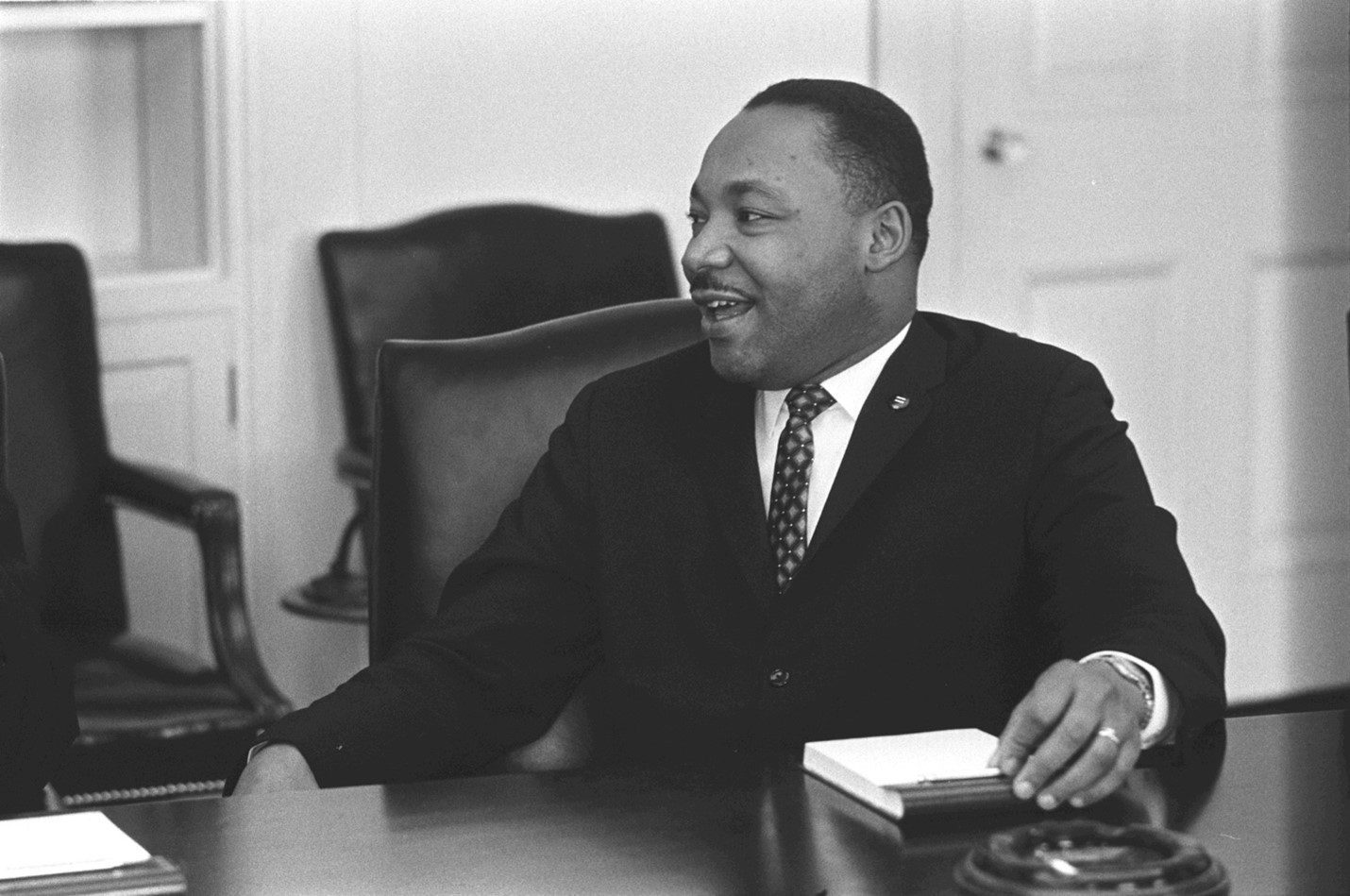Episode Transcript
Show Notes
Kyle: Welcome to another edition of Wit, Wisdom, and What Matters Most, a podcast about the nuances of life. I’m Kyle Luetters, joined by Danton Troyer, and we’re both on the Gast Freeman Troyer Racen Team at Moneta, a registered investment advisory firm.
Danton, typically, we will have a guest on the show and we’re talking to someone about their experiences in life, their stories. But today…no guest, but we’re still sharing some of what I would say is the wisdom that you and I have gleaned over our time in the profession that we’re in. And we’re talking about retirement.
We’re talking about some of the best practices that we’ve observed in retirement. And again, everybody’s story is different. Everybody’s story is unique.
But we’ve kind of been talking about the things that we’ve noticed that the folks that seem most happy, most fulfilled in retirement, what they kind of do.
Danton: Yeah, I mean, we’ve heard stories from different individuals. But there’s also stories that we just share from doing this over the last 17 years and seeing some folks have been more successful than others in their retirement; how they approach it matters.
Kyle: And so that’s what we’re going to talk about today, just some of those stories. Yeah, and so we’ve kind of taken some of our observations here together and it will just kind of start rolling with those.
But, you know, Danton, it’s been very interesting. You mentioned the time that you’ve been doing this. I’ll say that hasn’t been quite as long, but it’s now been long enough, I do have a few gray hairs to help mark the passage of time and I’ve had the privilege of working with a number of folks that were either retired when I started or have since retired. And one of the things I wanted to kind of toss out there was this idea of the folks that seem to be the most happy, most fulfilled in retirement…they have a good idea of the types of activities that they want to do when they get there.
But they’re also open to changing them. You know, we hear the story all the time of like, if I could retire and just play golf every day, that would be great. And I know that’s probably right in your wheelhouse.
Danton: It doesn’t sound too bad.
Kyle: Exactly. But sometimes what we hear is, is that folks will retire, they think they’re going to do one thing, but then they end up doing other things and they kind of find themselves a little bit in retirement.
Danton: Yeah. And we’ve seen folks that go in thinking, I’m going to have all this free time. I think that’s the biggest thing people maybe are surprised about as they start to plan out their activities is that they don’t have that much free time between, maybe volunteering and maybe golf and a couple other things. I mean, your schedule is pretty full. Hopefully it’s doing things that are more enjoyable than going to the office every day, but people are a lot busier than I think they anticipate being when they head into retirement.
Kyle: You know, that was one of the funniest things. We have a client down, down in the Mid-South, I would say. And he says, gosh, I don’t know how I ever had the time to work! So, to your point, there is a lot that goes into the activities. And then we’ve seen, we’ve mentioned golf, so activity type stuff, taking more yoga classes or Pilates classes, volunteerism.
Danton: Yeah. I think that’s a big one that we’ve seen a lot and also contributes to maybe filling up calendars potentially a little bit faster because there’s plenty of folks that need help out there and plenty of opportunities to volunteer. And so, if you are willing to volunteer for one of those organizations, they’ll use you as much time as you’ll let them.
Kyle: Well, and also too, it does help fulfill this kind of innate human feeling of needing, or excuse me, wanting to feel needed, wanting to feel like you belong. And when you think about it, we work for the majority of our lifetime, we have a purpose when we get up in the morning and it’s usually to go and do a vocation. When you get into retirement, sometimes that volunteering, that having a place to go, that sense of being needed is actually very, very powerful.
Danton: Yeah. And we’ve heard that from even guests talking about not quite being ready to retire simply because they feel like they have more to give. And I’ve heard that from especially higher level executives and they just feel like there’s more to give back into maybe the business world. And I think part of that is they haven’t figured out how they can give back in retirement as well and maybe in a different way.
Kyle: And one thing that we’ve heard too is that a lot of folks will say, I want to retire from something, but really it’s retiring to something or somethings, so to speak.
Danton: Absolutely. Well, I think one of the other ones that I’ve seen is folks trying to rely on their friends, family, coworkers, nowadays, social media, as they’re going into retirement or really any financial decision. And I think those folks that are able to be secure and confident in their financial plan have less distractions as it comes to making these very important decisions. And, unfortunately, we’ve seen people make some pretty poor decisions in doing that, but also folks that have been able to kind of block that out. And then they bring the questions to us all the time and I think in a good way, versus some folks maybe don’t bring them to us and just execute on them on their own. And a lot of times we end up cleaning up mistakes that they thought were a great idea, but potentially were not.
Kyle: We call this brother-in-law at Thanksgiving dinner advice, and not to pick on brother-in-laws, I am a brother-in-law, and sometimes I do have bad ideas at Thanksgiving dinner. But, you bring up an excellent point in that one of the most beautiful things about what we do is each individual plan, each individual set of circumstances is customized to someone’s retirement, to someone’s goals and objectives. And frankly, selfishly, that’s one of the most fun things about what we get to do is that no financial plan is exactly the same. No set of circumstances is exactly the same. So, each day, each year by year, it’s different.
Danton: Correct. Yeah. And I think my example, I won’t say which family, but I was at Thanksgiving one year and there was an argument over basically what Medicare supplement someone’s having. Someone said, I’m on a, well, they didn’t say exactly, but I’m on a Medicare Advantage and it’s free and you should definitely be on that one. And I always sit back quietly. I was like, well, they may have other health issues. I mean, you have no idea what their circumstances are to give them that advice, especially not at Thanksgiving dinner.
So, I hope that person kind of went back and thought about it as it relates to themselves versus just taking blanket advice. And I may see that with social media, you know folks send us these -what seem like great ideas – but if you peel back a little bit, it doesn’t work for them in any way. And in fact, could potentially hurt them if they would have tried that strategy just because it didn’t work for them, but it may not have been necessarily wrong.
Kyle: At times it’s very difficult to paint with a very broad brush. There’s a lot of little nuance and detail that some of those smaller brushes can help provide the color on. You know, one thing too, to bear in mind as well, that’s different for each and every plan and client and family is, and this is I think a best practice, is having a good idea on monthly and or annual spending numbers. Because when we’re working, we can continue to earn a paycheck. So, if we’re spending money, we know that we’re still going to work. Hopefully we’re getting a raise or we’re going to move to a different job and make additional money and that’s going to take care of that when you get into retirement. It is really kind of interesting because you’re no longer earning. You’re now shifting gears to spending rather than accumulating at that point. So, the vast majority of the time, when we’re taking a look at financial plans and projections and things like this and that, one of the biggest things that drives success is that expense and that spending number.
Danton: Yeah. I feel like that’s something we talk about almost every meeting with a client and it’s either one or two ways where they have been a great saver their whole lives and they’re actually struggling to spend the dollars versus the other side where they’re calling up asking for more money every year. And they thought that they were only going to live on X amount of dollars, but it turned out to be quite a bit more and it was a surprise to them. And so I think having a good handle on that, going into retirement is one of the biggest keys, certainly for success. And obviously the goal is not running out of money.
Kyle: Now, I think that’s very important to notate that. And one thing that is kind of like a subset best practice I would say is, is that in the maybe two to three years before someone fully retires is, is going through some sort of a tracking exercise to really kind of get an idea. A ballpark is really what we’re asking, like a ballpark because some years are going to be more expensive than others. Some months are more expensive than others. We both have kids so it seems to me like December’s always usually more expensive than June, but then again, who knows, depends on when you take a vacation. So, that’s definitely one I think we would like to share with everyone is just kind of having an idea of the spending amounts, just that way we can have confidence in the plan.
Danton: Yeah, I agree. We see folks that have, like I said, done a good job saving on the flip side of that is allowing them to enjoy their retirement with the money that they’re spending. And we see so often where someone’s like, well, I can’t take that trip or I can’t, you know, do this home upgrade that I’ve always wanted to do. And the reality is once we run the numbers, they absolutely can and should. But then they also maybe say, well, I want to increase my spending on a monthly basis. And that has a much larger effect on their plan than that one-time spending. They should do that one thing, but maybe not increase their spending by 20% every month. That may not work out for them in the way that they think.
Kyle: You hit on something that I think is one of the most fascinating aspects to retirement, which is we spend, again, the majority of our life working and saving. And then there’s a mindset shift where, and some folks handle it better than others, but kind of unpack a little bit what you’ve seen in your experiences, Danton, from when you have a really good saver that in the lead up to retirement has done a phenomenal job. The portfolio looks great, but then they struggle when they get to retirement about actually spending, because you touched on a little bit about, hey, doing that one thing or this or that.
Danton: Yeah. I think of one client specifically, she recently retired and they had great pensions, which makes it easier. And they thought they couldn’t get a new house. There was no reason they couldn’t upgrade their house, math-wise. I think that was just a big stumbling block for them because they saw it as they almost didn’t deserve it. Like they just worked. I mean, she was a teacher and they just really saved really, really well, which they should be able to do those things that they worked their whole lives for. And so by having the conversation and showing kind of the numbers of how that would actually work out, we were able to make that happen for them. And, it’s not that we did anything necessarily different than we would for anybody else, but just giving them the confidence to move forward with that, I think is huge because they may still be living in the old house and not taking the trips that they wanted to do. But their monthly spending is fairly low, so that’s how they’re going to be able to afford that is because they did such a great job saving. And, but because they did such a great job saving, they’re not used to being able to spend and take those trips that they kind of put off until retirement. And there’s no right or wrong. I mean, some folks want to spend more of their money during their working years and maybe a little bit less in retirement. There’s no one way to do it, but in their case, they had basically put everything off and now we’re going to do it, but it’s hard to mentally get over that block of, I can do this now.
Kyle: Yeah, what else you got on your list?
Danton: I think that was some of the bigger topics that we covered actually. One of the other things I guess that I see kind of along the same lines though folks plan the retirement, not necessarily about what they want, but what maybe the government tells them that is available. So, everybody walks in and says I want to retire at…you should pick an age, like 65, 62, 70, even, and those are all numbers that have to do with social security payments, Medicare payments. So I think, maybe stepping back and asking the question of when do you actually want to retire? Not necessarily because of one of these deadlines. Does 63 makes sense? Then let’s figure out how to make that work versus, well, I’m going to wait until 65, just because that’s when I get Medicare.
We can easily account for private insurance and those types of things. That’s probably scary for them. But I think once you have that plan in place, it allows you again, to have that confidence to be able to retire at 63 versus wait an extra two years that maybe you don’t even need to. And so I think that’s one thing I see a lot of folks target ages more around the government benefits versus what do they actually want? What makes sense for their life?
Kyle: You bring up a very good point that it always just seems like there are these cultural, there’s these cultural flags in the sand, so to speak, and there’s these various ages. I was meeting with a couple the other day that are originally from Brazil and their view on retirement and their view on how we do retirement in this country fascinates them because it’s so culturally different than what they grew up with, what they saw their grandparents go through, what they’re seeing their parents now go through. So, again, because they’re asking all these questions about, Hey, well, we have these different types of accounts here in the United States, where in Brazil, there’s one and healthcare is basically a flat fee per month for the rest of your life. So Medicare, and all this other stuff is not even a consideration. Whereas in our society, in our culture, I mean, we’ve got these flags here. So, fascinating stuff.
One thing I wanted to touch on, and this is kind of one of the final bigger pieces that I had was, there’s a word out there we try to use when we’re talking about retirement and goals and everything like that. And that word is contentment. And I think in this instance, contentment means that you’ve defined your goals, you know what you’re aiming at, and you’ve kind of designed this retirement and you’re at peace with it. And to your point about speaking with others and trying to do this and that, your plan may not support that, or your plan may more than support that.
So having the contentment, not only to be happy with the plan, but also maybe you need to have the contentment and the confidence to adjust it up as well too, as if your desire is not to leave a large sum of money or a large sum of assets to the next generation, then, be content with not doing that and spending some more of it while you’re still walking the earth, so to speak.
Danton: Yeah, I think having that plan, as we’ve talked about, is vital for a number of reasons. And really, we see kind of those different stages – that five years leading up to retirement is kind of a special stage of when people start to realize it’s coming.
And I’ve seen many folks get to that date we said we were going to retire and are like, I can’t do it. And I think a lot of it is because it was this abstract in their mind, no matter how much we planned and put into it. When the date comes, it can be tough. And so I think the more time you spend talking through it certainly makes an easier transition.
And then you’ve got those five years afterwards, where you’re still trying to figure out and everybody’s a little different, maybe it may not be fully five years, but people are adjusting to not going to work every day.
We’ve heard some good stories about that transition from other folks on the podcast, and everybody’s a little different and how long it takes. I mean, some people jump right in and they’re fine. I would say that’s not typical. I mean usually at least a year to maybe on the short side maybe six months, then I think folks really start to settle into the retirement. And then again, they come back to the plan, they have a new perspective, again on the planning process. And then 10 years into retirement, they’re pretty comfortable with their plan.
But even later in life, then there’s those questions of should I be gifting to kids, grandkids? What does that look like? So, I think there are phases even as you’re in retirement, that are important and take time to adjust to,
Kyle: We had a couple in here earlier this week, the husband has been retired for a year and some change probably, and the wife just retired. And one comment she made that struck me, she looked at her husband and kind of grasped his hand and said, you took to retirement so easy, and are so content with your day-to-day reading, going here, taking a walk, this and that, and she’s really struggling. Now, she’s been retired less time. But she, by her own admission, said, I’m going to struggle with this for a while. And it’s really the way that she’s wired. You know, so I thought that one was an interesting story based on what had kind of happened today and what we’re talking about in this episode.
Danton: Yeah, it is interesting, there’s two spouses and one is they don’t retire at the same time or close to the same time. And you know, maybe someone’s working five, 10 extra years additional years, right? And how that affects their transition. And, you know, I think that’s more common now that one spouse retires sooner than the other. And then maybe there’s a couple years of transition. And you always find it interesting to see how then that second transition goes where the second spouse retires, when then they’re both home, basically, you know, for a very long weekend.
Kyle: Well, and it brings up a good point, because when someone retires, there’s a changing of the routine. And so it’s in a way where you talk about staggered retirements, it’s almost like going through a couple of routine changes, because you have the first spouse retiring, so that’s a little bit of a different routine from both spouses working full time. And then there gets to be a bit of a development going in that regard. And then the second spouse retires, and then the routine changes again, because now all the time is opened up. So that’s a good thing to think about. I’ve shared this story in some meetings, so I know you’ve heard it before. But my wife and I teach premarital, and one of the things that they teach us as facilitators to help share with newlywed couples, even couples that have been married for a while, is choose your ruts carefully, because they are difficult to get out of.
Danton: Yes.
Kyle: And so that can also kind of play into the retirement thing as well.
Danton: Yeah, I agree. For sure. I mean, we see that, especially, like I said, with the spouses, and even, you know, single folks mean there’s different transitions that they’re going through with their life as well. So, it’s good to be able to help those folks from a financial standpoint, but also just thinking through those things and sharing these stories, because they help other folks make those choices as well.
Kyle: So as we kind of head from home here, we’ve told a lot of stories, just kind of to recap a little bit, I’ll give my best practices, I’ll have Danton give his. But really, as we’re having this discussion around retirement, the idea behind this podcast episode, and the idea behind some of the stories we’ve been sharing is really to just give some perspective. And so that’s what we’re hopeful to be able to do with these. So again, I’ll recap mine, and I’ll turn it over to Danton to recap his.
- I would say have a good idea of the types of activities you want to do, and be open to changing them. If you get to retirement, you say, Hey, I thought it was going to be this way, it’s really not I need to go find something different.
- Having a good idea on your monthly and annual spending, because it’s going to be one of the biggest drivers of success of the plan.
- And then lastly, for me is finding that contentment, you know, finding that peace. And when I think of the word contentment, I always think of the word peace, but kind of finding that in your overall retirement story. And for that season of life.
Danton: Yeah, overall, the theme of this is having a plan and not necessarily just a plan around the money. I mean, obviously, that’s important; that’s what we do for a living. But having those conversations around what that’s going to mean for you mentally day-to-day, it can be a challenge on the psychological side and that’s what we want to talk about as well.
When we’re making these plans, how do you actually make this work, as a spouse and a couple; you’re going from one mindset to another. So, I think having those conversations, in addition to the dollars and cents, that’s where you can have the most successful retirement.
Kyle: I appreciate that very much. And, hey, this was kind of fun, you know, where we didn’t have a guest, we’d normally like having them, but it was nice to sit here and chat with you and talk about an interesting topic. So awesome. Any other final thoughts you have?
Danton: Might have to do this format again.
Kyle: Well, until next time, enjoy what matters most! Wit, Wisdom and What Matters Most is a production of Moneta’s Gast Freeman Troyer Racen Team, headquartered in St. Louis, Missouri.
© 2025 Advisory services offered by Moneta Group Investment Advisors, LLC, 100 South Brentwood Blvd., St. Louis, MO 63105 (“MGIA”), an investment adviser registered with the Securities and Exchange Commission (“SEC”). MGIA is a wholly owned subsidiary of Moneta Group, LLC. Registration as an investment adviser does not imply a certain level of skill or training. This is an advertisement. The information contained herein is for informational purposes only, is not intended to be comprehensive or exclusive, and is based on materials deemed reliable, but the accuracy of which has not been verified. Examples contained herein are for illustrative purposes only based on generic assumptions. Given the dynamic nature of the subject matter and the environment in which this communication was written, the information contained herein is subject to change. This is not an offer to sell or buy securities, nor does it represent any specific recommendation. You should consult with an appropriately credentialed professional before making any financial, investment, tax, or legal decision. Past performance is not indicative of future returns. You cannot invest directly in an index. All investments are subject to a risk of loss. Diversification and strategic asset allocation do not assure profit or protect against loss in declining markets. These materials do not take into consideration your personal circumstances, financial or otherwise. Trademarks and copyrights of materials linked herein are the property of their respective owners.
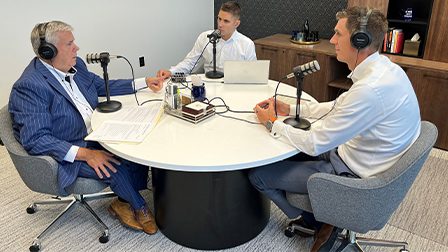
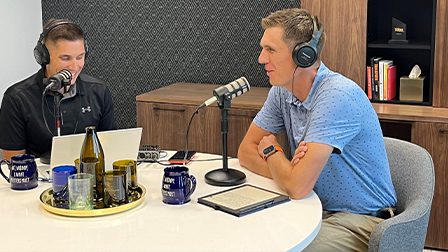
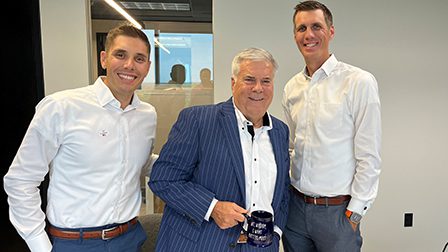
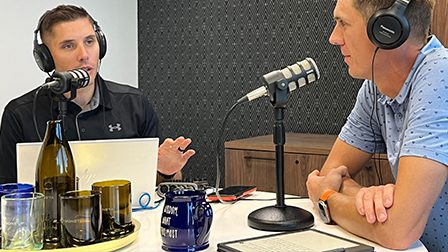
© 2025 Advisory services offered by Moneta Group Investment Advisors, LLC, 100 South Brentwood Blvd., St. Louis, MO 63105 (“MGIA”), an investment adviser registered with the Securities and Exchange Commission (“SEC”). MGIA is a wholly owned subsidiary of Moneta Group, LLC. Registration as an investment adviser does not imply a certain level of skill or training. This is an advertisement. The information contained herein is for informational purposes only, is not intended to be comprehensive or exclusive, and is based on materials deemed reliable, but the accuracy of which has not been verified. Examples contained herein are for illustrative purposes only based on generic assumptions. Given the dynamic nature of the subject matter and the environment in which this communication was written, the information contained herein is subject to change. This is not an offer to sell or buy securities, nor does it represent any specific recommendation. You should consult with an appropriately credentialed professional before making any financial, investment, tax, or legal decision. Past performance is not indicative of future returns. You cannot invest directly in an index. All investments are subject to a risk of loss. Diversification and strategic asset allocation do not assure profit or protect against loss in declining markets. These materials do not take into consideration your personal circumstances, financial or otherwise. Trademarks and copyrights of materials linked herein are the property of their respective owners.

